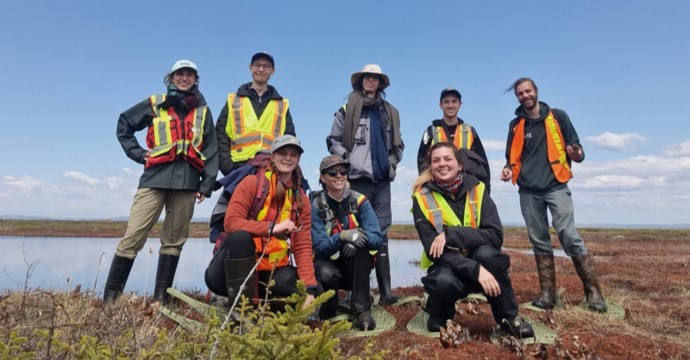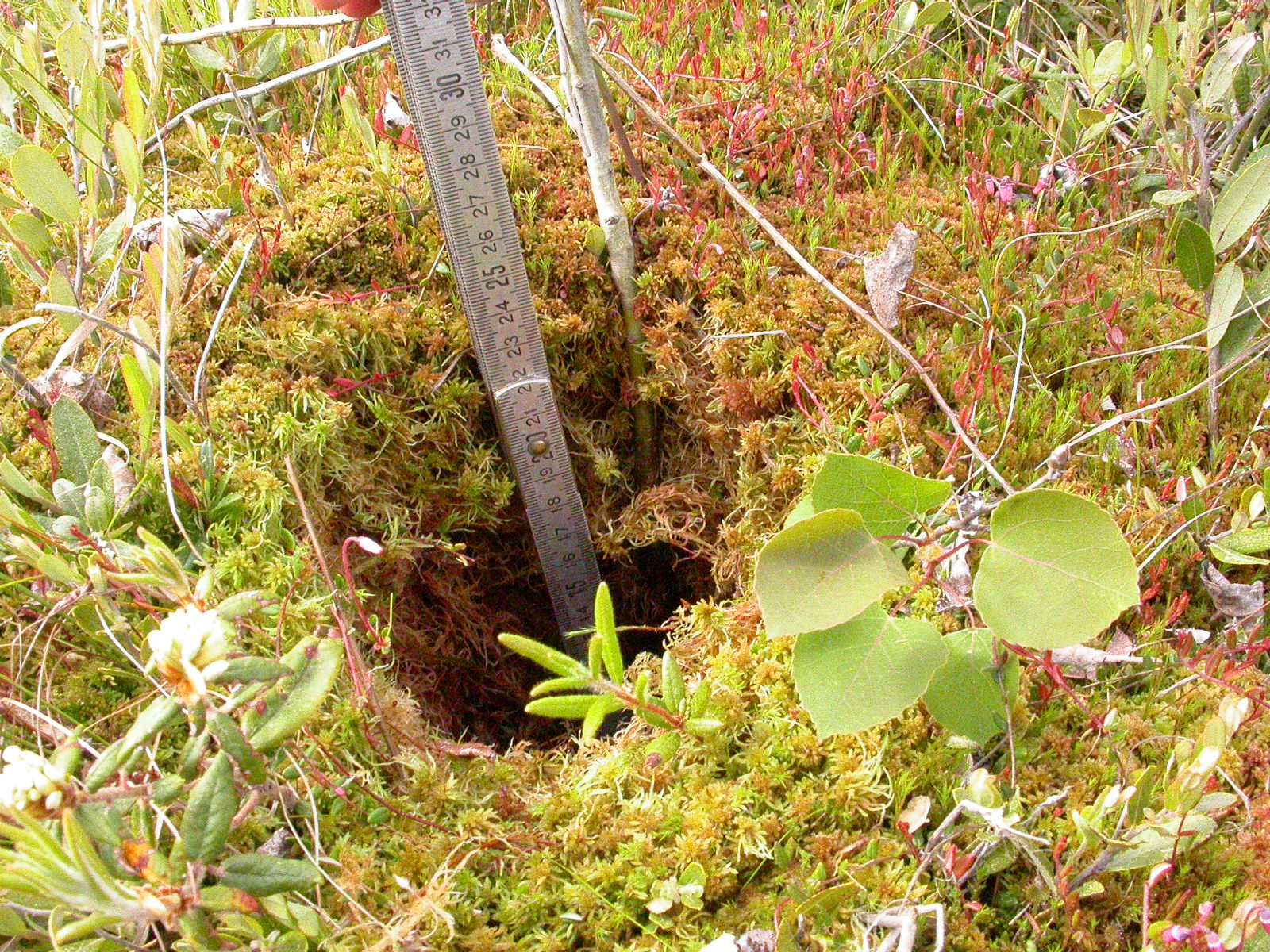The Saturn Project team, a research initiative in collaboration with Premier Tech Producteurs et Consommateurs, has already embarked on an exciting field season.
The Saturn Project is studying the effects of the new acrotelm harvesting method (the top layer of peat) developed by Premier Tech Producteurs et Consommateurs on preserving vegetation and wildlife, reducing peat decomposition and protecting the carbon stock. ICI Côte-Nord gave a brief presentation of this method in its April 4, 2024 article, for which Line Rochefort was interviewed (link here, in French).
Under the direction of Line Rochefort and Mélina Guêné-Nanchen of the Department of Plant Sciences at Université Laval, the team consisting of Éléonor Bergeron-de Pani, a doctoral student, Catherine Roberge, a research intern from the Cégep de La Pocatière, Olivier Gingras, a master's student, and Nicolas Duvivier, an undergraduate research assistant, is undertaking an in-depth study of the impact of the acrotelm harvesting method on vegetation regeneration. Their research will involve a multi-faceted approach, examining effects on plant communities, plant productivity and decomposition. On the other hand, under the supervision of Marc Mazerolle, professor in the Department of Wood and Forest Sciences at U. Laval, doctoral student Lucas Voirin will investigate the impacts of acrotelm harvesting on wildlife, using sound recorders among other means. Student researchers from the universities of Waterloo (under the supervision of Maria Strack) and Queen's (supervision by Ian Strachan) will also be on hand to assess the impact of the acrotelme harvesting method on carbon fluxes and hydrological conditions.
Moreover, the doctoral student Takara Simpson Jenkins and the research professional Dan Aberg, both from Bangor University in the UK (under the supervision of Christian Dunn), bring international expertise to the project. They are focusing on assessing changes in soil's enzymatic activity after harvesting.

The team at the Pointe-Lebel experimental site (North Shore, Quebec) in May 2024, from left to right, top line then bottom line: Éléonor Bergeron-de Pani, Dan Aberg, Nicolas Duvivier, Olivier Gingras, Jérémi LaRue-Grondin, Catherine Roberge, Mélina Guêné-Nanchen, Takara Simpson Jenkins.
As the entire team embarks on this exciting season in the field, we wish them a productive and rewarding summer!
